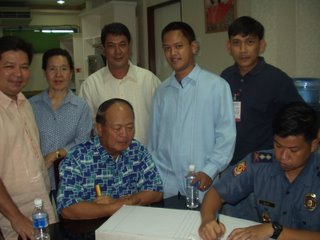Every journalist must have a working familiarity with the landmark ruling Branzburg versus Hayes, decided by the United States Supreme Court.
The Court was divided (5-4) and the decision was arrived after intense opposing views by the majority and the dissenters.
In this case the United States Supreme Court ruled that requiring newsmen to appear and testify before state or federal grand juries DOES NOT abridge the freedom of speech and press guaranteed by the First Amendment.
The Brief Facts in Branzburg
On November 15, 1969, the newspaper Courier-Journal carried a story under the by-line of petitioner Branzburg describing in detail his observations of two young residents of Jefferson County synthesizing hashish from marihuana, an activity which, they asserted, earned them about $5,000 in three weeks.
The article included a photograph of a pair of hands working above a laboratory table on which was a substance identified by the caption as hashish.
The article stated that petitioner had promised not to reveal the identity of the two hashish makers.
Branzburg was shortly subpoenaed by the Jefferson County grand jury; he appeared, but refused to identify the individuals he had seen possessing marihuana or the persons he had seen making hashish from marihuana.
In another incident involving petitioner Branzburg arose out of his later story published on January 10, 1971, which described in detail the use of drugs in Frankfort, Kentucky.
The article reported that in order to provide a comprehensive survey of the "drug scene" in Frankfort, Branzburg had "spent two weeks interviewing several dozen drug users in the capital city" and had seen some of them smoking marihuana.
A number of conversations with and observations of several unnamed drug users were recounted. Subpoenaed to appear before a Franklin County grand jury "to testify in the matter of violation of statutes concerning use and sale of drugs," petitioner Branzburg moved to quash the summons.
The newsman’s argument
In refusing to testify, Branzburg, argued that to gather news, it is often necessary to agree either not to identify the source of information published or to publish only part of the facts revealed, or both; that if the reporter is nevertheless forced to reveal these confidences to a grand jury, the source so identified and other confidential sources of other reporters will be measurably deterred from furnishing publishable information, all to the detriment of the free flow of information protected by the First Amendment.
The claim by the newsman is that reporters are exempt from these obligations because if forced to respond to subpoenas and identify their sources or disclose other confidences, their informants will refuse or be reluctant to furnish newsworthy information in the future.
This asserted burden on news gathering is said to make compelled testimony from newsmen constitutionally suspect and to require a privileged position for them.
The issue
The sole issue for determination is the obligation of reporters to respond to grand jury subpoenas as other citizens do and to answer questions relevant to an investigation into the commission of crime.
The majority opinion
The majority of the Supreme Court decided that the First Amendment does not relieve a newspaper reporter of the obligation that all citizens have to respond to a grand jury subpoena and answer questions relevant to a criminal investigation, and therefore the Amendment does not afford him a constitutional testimonial privilege for an agreement he makes to conceal facts relevant to a grand jury's investigation of a crime or to conceal the criminal conduct of his source or evidence thereof.
The Court added: We cannot seriously entertain the notion that the First Amendment protects a newsman's agreement to conceal the criminal conduct of his source, or evidence thereof, on the theory that it is better to write about crime than to do something about it.
Insofar as any reporter in these cases undertook not to reveal or testify about the crime he witnessed, his claim of privilege under the First Amendment presents no substantial question.
The crimes of news sources are no less reprehensible and threatening to the public interest when witnessed by a reporter than when they are not, the Court said.
Shifting gears?
Having said this, though, the Supreme Court shifted gear and ruled that news gathering is not without its First Amendment protections, and grand jury investigations if instituted or conducted other than in good faith, would pose wholly different issues for resolution under the First Amendment.
The Court added that official harassment of the press undertaken not for purposes of law enforcement but to disrupt a reporter's relationship with his news sources would have no justification. Grand juries are subject to judicial control and subpoenas to motions to quash.
“We do not expect courts will forget that grand juries must operate within the limits of the First Amendment as well as the Fifth,” the Supreme Court said.
The Standards in requiring newsmen to testify
What is striking in this landmark decision is that while the Supreme Court ruled that there is no testimonial privilege available to newsmen, that would immunize them from grand jury subpoenas, the Court laid down an important pre-condition before such subpoena is effected.
The Court said, “if there is no First Amendment privilege to refuse to answer the relevant and material questions asked during a good-faith grand jury investigation, then it is a fortiori true that there is no privilege to refuse to appear before such a grand jury until the Government demonstrates some "compelling need" for a newsman's testimony.
Since then, it has been a pre-condition that the government first demonstrate a “compelling need” for a newsman’s testimony.
As a matter of fact, the U.S. Senate bill which seeks to legislate shield law protection mandates that newsman have to be given an opportunity to be heard on the matter of “compelling need” before newsmen actually are compelled to testify.
[1] These conditions naturally flow from the requirement of “compelling need” required by the U.S. Supreme Court in Branzburg.

